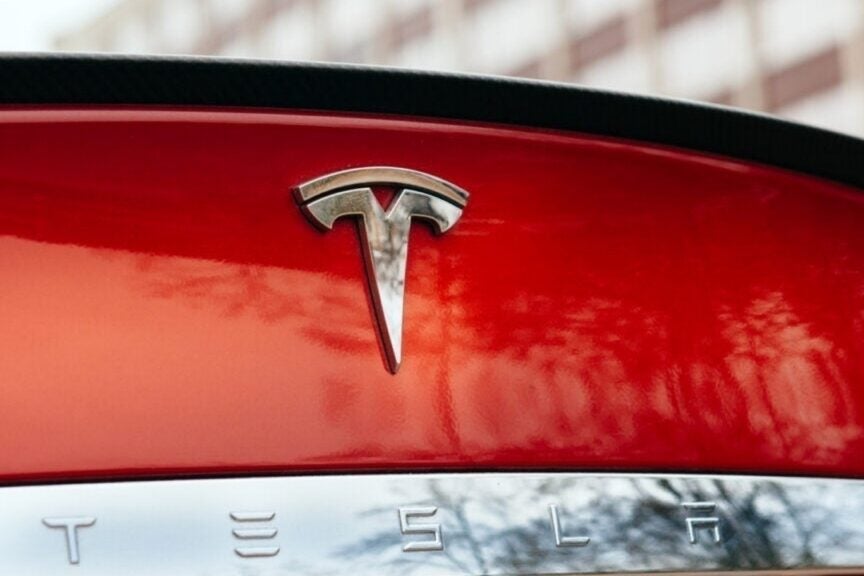Analysts Predict AI Boom Under Trump: Implications for Tesla and the Automotive Industry
The potential return of Donald Trump to the White House has ignited discussions about a forthcoming $1 trillion opportunity in artificial intelligence (AI) that could significantly impact various sectors, notably the automotive industry. A leading tech analyst recently raised Tesla’s price target to $515, linking this optimism to the predicted economic surge driven by AI advancements. This article will explore the implications of this forecast, the transformative role of AI in the automotive sector, and the broader economic landscape that could emerge from a Trump presidency.
The $1 Trillion AI Opportunity
As AI technology continues to evolve, its applications are becoming increasingly pervasive across industries. From autonomous vehicles to smart manufacturing, the integration of AI is expected to create substantial economic value. Analysts estimate that the global AI market could reach $1 trillion by 2030. This projection is built on several factors:
- Increased Investment: Both public and private sectors are ramping up investments in AI research and development. Companies are recognizing the potential for AI to enhance efficiency and create new revenue streams.
- Advancements in Machine Learning: Innovations in machine learning algorithms and data analytics are enabling more sophisticated AI applications, particularly in predictive maintenance and customer personalization.
- Government Support: A pro-business administration could stimulate growth in AI through favorable policies, tax incentives, and funding for tech initiatives, potentially enhancing the competitive landscape for companies like Tesla.
Tesla’s Position in the AI Landscape
Tesla, as a leader in both electric vehicles and AI technology, stands to benefit significantly from this potential boom. The company’s commitment to developing autonomous driving capabilities positions it at the forefront of the AI revolution in the automotive sector. Here are several critical factors contributing to the optimistic price target for Tesla:
- Autonomous Driving Technology: Tesla’s Full Self-Driving (FSD) software leverages AI to navigate and make decisions on the road. As regulations around autonomous vehicles evolve, Tesla’s technology could dominate the market.
- Data Advantage: Tesla’s extensive fleet of vehicles provides a unique advantage in data collection. The vast amounts of real-world driving data can be utilized to refine AI algorithms, improving vehicle performance and safety.
- Brand Loyalty and Market Position: Tesla has cultivated a strong brand presence and customer loyalty. As the demand for electric vehicles increases, Tesla’s market share is likely to expand, further bolstered by advancements in AI.
Potential Challenges for Tesla
While the prospects for Tesla and the AI industry appear promising, several challenges remain that could impact the company’s growth and valuation:
- Regulatory Hurdles: The path to widespread adoption of autonomous vehicles is fraught with regulatory challenges. Safety concerns and liability issues will need to be addressed before full autonomy becomes a reality.
- Competition: As more companies enter the electric vehicle and AI space, competition is set to intensify. This could pressure margins and market share for Tesla, particularly from traditional automakers who are investing heavily in EV technology.
- Technological Limitations: While Tesla’s technology is advanced, it is not infallible. Technical failures or setbacks in AI development could hinder the company’s progress and investor confidence.
The Broader Economic Landscape
The potential return of Donald Trump to the presidency could also create a favorable environment for tech companies, particularly in AI and electric vehicles. A Trump administration may prioritize deregulation and incentivize private sector growth, leading to:
- Tax Reforms: Policies that lower corporate taxes could enhance profitability for tech firms, encouraging more investment in AI and related technologies.
- Infrastructure Investments: Increased funding for infrastructure could lead to advancements in transportation systems, including the integration of smart technology and electric vehicles.
- International Trade Policies: Favorable trade agreements could boost exports of American-made electric vehicles and AI solutions, enhancing market opportunities for companies like Tesla.
Implications for Investors and the Market
The anticipation of a $1 trillion AI boom has significant implications for investors. Stock analysts and market participants need to consider the following:
- Diversification: As the AI sector grows, investors may want to diversify their portfolios to include a mix of established players and emerging startups in the AI and electric vehicle markets.
- Long-term vs. Short-term Gains: The AI boom may present opportunities for long-term investments, but volatility in the market could also lead to quick fluctuations. Investors should assess their risk tolerance accordingly.
- Monitoring Regulatory Changes: Keeping abreast of policy changes and regulatory developments will be crucial for investors, as these factors can significantly influence market dynamics.
Conclusion: A Transformative Era Ahead
The intersection of AI technology and the automotive industry presents a remarkable opportunity for growth and innovation, particularly if Donald Trump returns to the White House. Tesla, with its pioneering advancements in electric vehicles and AI, stands to gain immensely from the anticipated economic boom. However, stakeholders must remain vigilant about the challenges and market conditions that could impact this trajectory.
As we look ahead, the potential for AI to reshape industries and enhance everyday life is vast. Engaging with developments in this area will be crucial for investors, companies, and policymakers alike. The dialogue surrounding AI’s transformative power is just beginning, and its implications will reverberate across the economy for years to come.
See more Business Focus Insider Team

